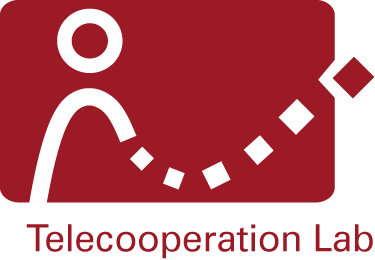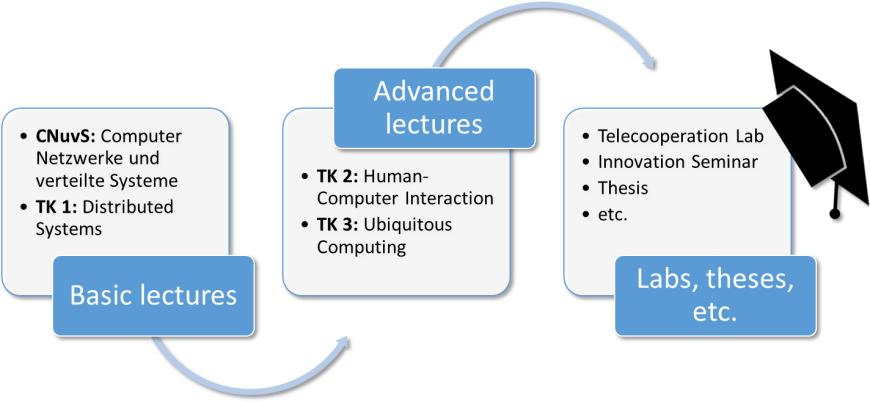Network Centric Computing
Most of our courses are part of the teaching cluster „Net Centric Computing“ (NCS). In a turn taking schedule, we teach the basic course „Introduction to NCS“ about fundamental principles and models of computer networks and multimedia.
- „TK1: Distributed Systems“ offers both a software engineering and a distributed algorithms perspective on this fundamental field of computer science. Two out of five hours per week are devoted to exercises.
- Among the TK series of fundamental courses, „TK3: Ubiquitous Computing“ is closest to our research. It provides a comprehensive introduction to topical approaches and links them to our research fields described in this booklet: cooperation, interaction, and protection. Exercises constitute half of the four hour per week course.
- “Internet Practical Course” is a hands-on lab which introduces emerging technologies which are becoming the basic building blocks of the next generation of Internet services, e.g., P2P, Semantic Web, Web 2.0, and mobile technologies.
- „Ubiquitous Computing in Business Processes“ provides an enterprise software perspective on our main research field. Practical examples, taken from real use cases, illustrate the approaches taught.
Finally, a variety of offerings provide hands-on experience in our field: for instance, our „Telecooperation Lab Practical Work“ is much in demand and the "Seminar“ guides students towards their own technical innovations, dozens of Bachelor and Master theses are carried out every year–and this list is noninclusive.
Human Computer Interaction
As a tribute to our interaction field of research, we offer the following courses:
- „TK2: Human Computer Interaction“ is an excellent introduction for every computer scientist willing to learn how to build computers and software for humans, not just for tech nerds.
- The „Advanced User Interaction Lab“ provides hands-on experience on designing and developing multimedia-based, collaborative and adaptive user interfaces.




